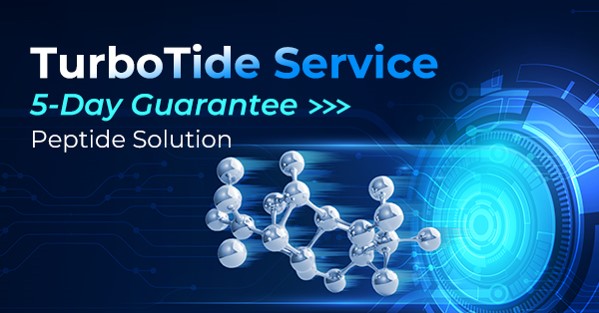-
REAGENT SERVICES
Hot!
-
Most Popular Services
-
Molecular Biology
-
Recombinant Antibody/Protein
-
Reagent Antibody
-
CRISPR Gene Editing
-
DNA Mutant Library
-
IVT RNA and LNP Formulations
-
Oligo Synthesis
-
Peptides
-
Cell Engineering
-
- Gene Synthesis FLASH Gene
- GenBrick™ Up to 200kb
- Gene Fragments Up to 3kb now
- Plasmid DNA Preparation Upgraded
- Cloning and Subcloning
- ORF cDNA Clones
- mRNA Plasmid Solutions New!
- Cell free mRNA Template New!
- AAV Plasmid Solutions New!
- Mutagenesis
- GenCircle™ Double-Stranded DNA New!
- GenSmart™ Online Tools
-
-
PRODUCTS
-
Most Popular Reagents
-
 Instruments
Instruments
-
Antibodies
-
ELISA Kits
-
Protein Electrophoresis and Blotting
-
Protein and Antibody Purification
-
Recombinant Proteins
-
Molecular Biology
-
Stable Cell Lines
-
Cell Isolation and Activation
-
 IVD Raw Materials
IVD Raw Materials
-
 Therapy Applications
Therapy Applications
-
Resources
-
- All Instruments
- Automated Protein and Antibody Purification SystemNew!
- Automated Plasmid MaxiprepHot!
- Automated Plasmid/Protein/Antibody Mini-scale Purification
- eBlot™ Protein Transfer System
- eStain™ Protein Staining System
- eZwest™ Lite Automated Western Blotting Device
- CytoSinct™ 1000 Cell Isolation Instrument
-
- Pharmacokinetics and Immunogenicity ELISA Kits
- Viral Titration QC ELISA Kits
- -- Lentivirus Titer p24 ELISA KitHot!
- -- MuLV Titer p30 ELISA KitNew!
- -- AAV2 and AAVX Titer Capsid ELISA Kits
- Residual Detection ELISA Kits
- -- T7 RNA Polymerase ELISA KitNew!
- -- BSA ELISA Kit, 2G
- -- Cas9 ELISA KitHot!
- -- Protein A ELISA KitHot!
- -- His tagged protein detection & purification
- dsRNA ELISA Kit
- Endonuclease ELISA Kit
- COVID-19 Detection cPass™ Technology Kits
-
- Automated Maxi-Plasmid PurificationHot!
- Automated Mini-Plasmid PurificationNew!
- PCR Reagents
- S.marcescens Nuclease Benz-Neburase™
- DNA Assembly GenBuilder™
- Cas9 / Cas12a / Cas13a Nucleases
- Base and Prime Editing Nucleases
- GMP Cas9 Nucleases
- CRISPR sgRNA Synthesis
- HDR Knock-in Template
- CRISPR Gene Editing Kits and Antibodies
-
![AmMag™ Quatro Automated Plasmid Purification]() AmMag™ Quatro automated plasmid purification
AmMag™ Quatro automated plasmid purification
-
![Anti-Camelid VHH]() MonoRab™ Anti-VHH Antibodies
MonoRab™ Anti-VHH Antibodies
-
![ELISA Kits]() ELISA Kits
ELISA Kits
-
![Precast Gels]() SurePAGE™ Precast Gels
SurePAGE™ Precast Gels
-
![Quatro ProAb Automated Protein and Antibody Purification System]() AmMag™ Quatro ProAb Automated Protein and Antibody Purification System
AmMag™ Quatro ProAb Automated Protein and Antibody Purification System
-
![Target Proteins]() Target Proteins
Target Proteins
-
![AmMag™ Quatro Automated Plasmid Purification]() AmMag™ Quatro automated plasmid purification
AmMag™ Quatro automated plasmid purification
-
![Stable Cell Lines]() Stable Cell Lines
Stable Cell Lines
-
![Cell Isolation and Activation]() Cell Isolation and Activation
Cell Isolation and Activation
-
 IVD Raw Materials
IVD Raw Materials
-
![Quick
Order]() Quick Order
Quick Order
-
![Quick
Order]() Quick Order
Quick Order
- APPLICATIONS
- RESOURCES
- ABOUT US
- SIGN IN My Account SIGN OUT
- REGISTER
Company News » Events » PepTalk 2025

PepTalk 2025
Hilton San Diego Bayfront
January 13 – 16, 2025
Booth #500GenScript is excited to announce our participation in the upcoming PepTalk 2025 conference, taking place both in person at the Hilton San Diego Bayfront and virtually from January 13 – 16, 2025.
This premier event will showcase innovative solutions designed to enhance biotherapeutics, covering a wide range of topics such as antibody engineering, bispecific antibodies, viral vector engineering, and protein expression platforms. Attendees will gain a unique opportunity to connect with industry experts and explore the latest advancements in the field.
We warmly invite you to visit us at Booth #500, where our team will be on hand to discuss how GenScript can support the success of your projects. We look forward to connecting with you and exploring opportunities for collaboration at this highly anticipated event!
Presentation

Title: Introducing the New Mini-Scale AmMag™ Quatro Mini-1100 and Scalable Maxi-1400 for Automated Plasmid Purification
Track: Automation in Protein Sciences
Date: January 14th, 2025 | Time: 10:10am - 10:40am PT
Rouba Najjar, MBA
Head of Product Marketing, GenScript Product Division
Bio:
Rouba Najjar is the Head of Marketing and Business Development at GenScript Biotech. Over the last decade, Rouba has specialized in providing scientists with automated solutions that simplify research and development. Her work as Product Manager at Hamilton Robotics, Automation Team Lead at Baylor College of Medicine, and currently as the Head of Product Marketing at GenScript Biotech has been focused on providing automated solutions and enhanced tools. Passionate about providing automated alternatives that improve research outcomes, her team is generating innovative, reliable, and high-quality reagents and instruments that support a wide variety of life science research and development areas.
Abstract:
GenScript introduces the new AmMag™ Quatro Mini-1100, an advanced system for high-throughput mini-prep plasmid purification, processing up to 192 samples per run with low endotoxin levels ideal for transfection-grade plasmids. Complementing this innovation, the AmMag Quatro Maxi-1400 supports maxi-preps with volumes up to 200 mL. Together, these systems streamline workflows, reduce hands-on time, and deliver scalable, high-quality solutions for modern research needs.

-




































